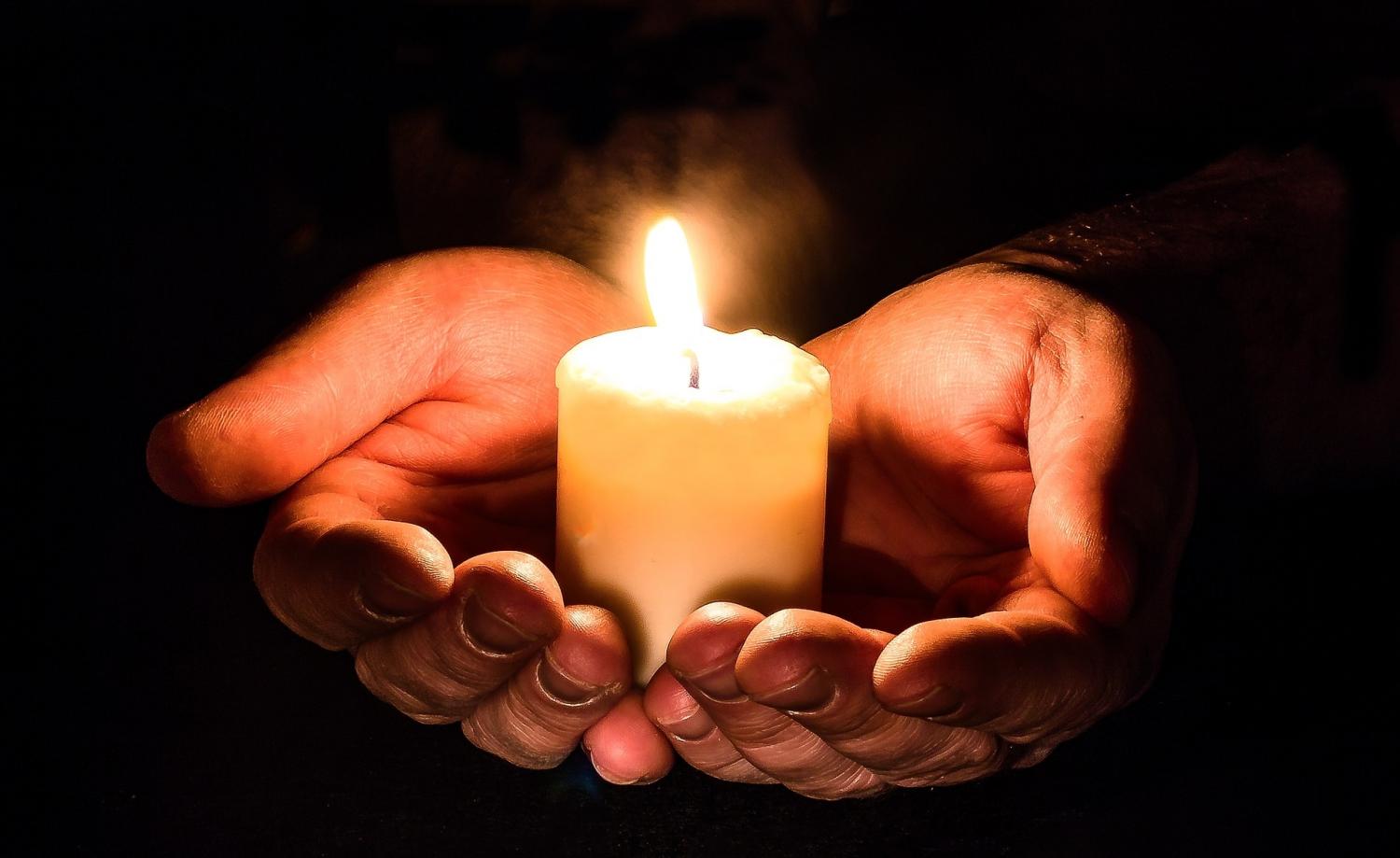
A Lament for Prayers Unsaid
By Larry McCloskey
I grew up, a doubter, serving mass at the cloistered convent on Richmond road in Ottawa. I remember being filled with trepidation walking to Les Soeurs de la Visitation on cold dark mornings, the echo of my boots crunching on snow still on my mind as I entered the warm dark, silence of the cloister. I remember the surreal feeling of serving mass as shadowy figures glided behind screens, further obscuring the cloisters just in case the dark room and traditional habit didn’t fully do the trick. I was both terrified and vaguely aware that deep mystery resides in this place.
But that convent life is now gone, the grounds and the stone building—surely the most impressive piece of architecture in Ottawa—are to be developed into, what else, condos. The only mystery may be what the fixtures and kitchen cabinetry choices will be.
The spacious convent gardens held another mystery. We knew of it but no one had actually seen the garden, and not being visible behind a high concrete wall only increased its sense of intrigue. What we did know, is that for many cloisters this garden was their only exposure to the world outside the stone building for months, years, a lifetime. The new plan for the grounds features a tug of war between developers and the neighborhood, and it is a mystery whether the gardens will be parceled up or sport another full-? fledged condo tower.
A few years ago I stopped by the convent and asked if it would ever be possible to see the garden. I was told that I had just missed an opportunity as the convent had celebrated its 75th anniversary and briefly had opened its gardens to the public. When, I asked, might there be another opportunity? Why, for the 100th anniversary I was told, straight-?faced and without a trace of irony. Time in the convent was not measured in minutes.
My Aunt Isobell was a nun for 65 years, mostly with the Sisters of St. Joseph of Peterborough. Before she died in 2005, my wife and I visited her regularly, often staying overnight in one of the many empty rooms. Visiting my aunt was not an act of charity. And her community of sisters did not fit any stereotype about doughty, heaven obsessed nuns. They were without exception feisty, engaged and engaging, keenly aware of current affairs, diverse in their opinions, and yet their opinions were singularly well informed. They did not much talk religion, liked their modest creature comforts, had careers in the community—in fact, the order since its beginning had served in and administered community hospitals. In the expression of their vocation they were worldly, in the best sense of the word. Perhaps most curious, whether from living a selfless life, or simply not having to capitulate to marriage, convent communal life absolutely held the secret to longevity.
My aunt died at age 88. She outlived her six siblings by several decades, and yet she had had health problems in middle life that should have done her in many years earlier. After her funeral I sat at a table with four of her fellow sisters. We talked about Isobell’s 65 years in the convent and I commented on just what a bloody long time that was. But once again I was to learn that nuns do not share my perspective about time. It turns out that two of my table companions were 98 years old and had entered the Sisters of St. Joseph convent in the same year; and in two years, when each turned 100, they were going to celebrate their 75th Jubilee together. How can you not like the word Jubilee? The other two sisters were over 90 years old and had over 70 years in the bank as nuns. So, Aunt Isobell was actually the kid, and had died tragically young (wish I’d known that for the eulogy). My companions could have all passed for women in their early 70’s. As our reminisces ended, one of the sisters mentioned that the spectacularly beautiful, pathetically empty convent building was to be soon sold, and that a small functional convalescent facility was to be built next door, to care for the last remaining nuns as they existed this mortal coil.
Last May, the Ottawa Independent Writers asked me to give a three day writing workshop at the convent in Pembroke. The large convent and grounds are mainly empty now and so are available for such functions. Though not as dark as the cloistered convent of my childhood memory, the Pembroke convent had vast , ominous empty wings, and being both superstitious and high strung, I had to investigate. The dim lighting could not extinguish the luminous impression staring back at me from hundreds of photos of convent life through the decades along corridor walls. There had been real and vibrant life here, and if ever a place was haunted, this was it. I liked that thought.
A few weeks ago, the Ottawa Citizen featured an article on the closing and sale of the Sisters of Sacred Heart, an Oblate Order on Main Street. Given that the nuns are dying out and not being replaced, the Oblate and sisters hired an architect to develop a community design plan. The plan envisions building 1300 housing units in townhouses and apartment blocks. And there is nothing fundamentally wrong with this plan; people need housing and downtown intensification makes sense.
Still, this piece is a lament. It is a lament for an ancient way of life that is disappearing in the blink of an eye. But more to the point, it is a lament for what most people, especially young people, will never know is missing. I grew up in an Irish Catholic family, one of seven kids – another lament for another day. My mother had a bracelet with seven charms, one for each of her children, and the days of the week equaling the number of her brood, we had an assigned day that she would pray for each of us exclusively. Being a middle child, my day was Wednesday. I don’t remember Wednesdays ever being special or lucky, but now that no one is praying for me, something seems to be missing.
When I was young I asked my mom why do we need cloistered nuns ? I was and remain fascinated by those who seek to remove themselves from the world for a greater cause but couldn’t figure what theirs might be. She answered that they chose not to be of this world in order to pray for it. And she added that the world badly needs people, especially these devoted people, praying for it. If that were true in the 1960’s, it must be even more true today.
There are stories about the power of prayer. I don’t know if they are true, even a little bit, but I do have a deep, palpable feeling that our collective shift away from religion and into ideological causes is not the answer to what ails the world. Can we really have devolved to the point where obsession with all things ‘green’ as an example, or brandishing our own personal form of social justice, or joining PETA, trumps trying to figure out why the heck we are here on this earth in this bodily form for this brief -?-? in nuns thinking-?-?period of time? No I don’t know have any answers, just a gut feeling that spiritually we have lost our way. Are we a soul encased in a physical body, or are we just a collection of cells soon to become compost? If the latter, being buried in compost bins instead of coffins might make our death more meaningful in a green sort of way. No afterlife, but no after-?waste either.No one prays for me on Wednesdays anymore. Not that I deserve it, but that is not the point—or perhaps, the fact that I am unworthy but someone still prayed for me for my most of my life, is the very point. Maybe the passing of convent life doesn’t matter. Gardens and superb architecture are just physical things after all. But there really was more to it than that.
With each passing day it seems that there are less people praying for the world and more people meddling in it. I lament the passing of convent life. I lament the devotion, the separateness from the world and its various causes and temptations, the understated examples of these lives well lived, the mystery and the fact that perhaps no one is left in our corner anymore. Most of all I lament that when the light is finally extinguished few will notice the dimming of our green troubled, world.
This article is a precursor to Larry McCloskey's Lament for Spilt Porter to be published by Castle Quay Books in spring 2018.









